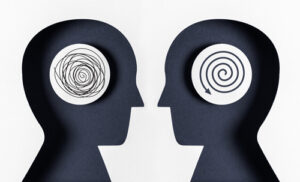Depression is a widespread mental health challenge affecting millions of people around the world. It can be an isolating and debilitating condition, but the good news is that help is available. In recent years, an increasingly popular and effective approach to addressing depression is group therapy. In this article, we’ll delve into the world of group therapy for depression, exploring its benefits, how it works, and how to find the right program near you.
Contents
- 1 What is Group Therapy for Depression?
- 2 How Does Depression Group Therapy Work?
- 3 Benefits of Group Therapy for Depression
- 4 Finding the Right Depression Group Therapy Near You
- 5 What to Expect in a Depression Group Therapy Session?
- 6 Is Group Therapy for Depression Effective?
- 7 Overcoming Common Concerns
- 8 Conclusion
What is Group Therapy for Depression?

Depression is more than just feeling sad; it’s a complex mental health disorder that can impact various aspects of one’s life.
Symptoms may include persistent sadness, changes in appetite and sleep patterns, loss of interest in previously enjoyed activities, and even physical symptoms like aches and pains. Understanding depression and its causes is the first step toward effective treatment.
Group therapy is a form of psychotherapy where a trained therapist leads a group of individuals who are dealing with similar issues.
In the context of depression, it brings together people who are experiencing the same emotional struggles, providing a supportive and empathetic environment for healing.
How Does Depression Group Therapy Work?
Depression group therapy is a form of psychotherapy where individuals who are experiencing depression come together in a structured and supportive environment to discuss their feelings, experiences, and challenges related to depression.
This form of therapy can be highly effective for many people, as it offers several benefits, such as reducing isolation, providing a sense of belonging, and offering opportunities for learning and personal growth. Here’s how depression group therapy typically works:
- Group Composition: Depression therapy groups are typically composed of 6-12 individuals who are experiencing depression or similar mood disorders. The group members may vary in age, background, and experiences, but they all share a common goal of managing and overcoming depression.
- Facilitator: A trained mental health professional, such as a psychologist, social worker, or counselor, usually facilitates the group sessions. The facilitator’s role is to guide the discussions, provide support, and ensure that the group remains a safe and productive space.
- Regular Meetings: Groups typically meet on a regular schedule, such as weekly or bi-weekly. Consistency is important for building trust and maintaining a therapeutic environment.
- Confidentiality: Members are often asked to agree to confidentiality rules, ensuring that what is shared in the group remains within the group. This creates a safe and trusting atmosphere where participants can be open and honest.
Benefits of Group Therapy for Depression

Group therapy for depression offers several benefits that can be valuable for individuals struggling with this mental health condition. These benefits include:
- Reduced Isolation: Depression often leads to feelings of isolation and loneliness. Group therapy provides a safe and supportive environment where individuals can connect with others who are experiencing similar challenges. This sense of belonging can help alleviate feelings of isolation.
- Validation: Group therapy allows participants to share their thoughts, feelings, and experiences with a group of people who understand and empathize with their struggles. This validation can be comforting and reduce the stigma associated with depression.
- Diverse Perspectives: Group therapy typically includes members from different backgrounds and experiences. This diversity provides a range of perspectives and coping strategies that individuals may not have considered on their own.
- Social Support: Group members can provide emotional support to one another, which can be particularly helpful during difficult times. Building a support network within the group can lead to lasting friendships and connections.
- Enhanced Coping Skills: Group therapy often involves learning and practicing coping skills for managing depression. Participants can gain insights into effective strategies from both the facilitator and other group members.
- Feedback and Accountability: Group members can offer constructive feedback and hold each other accountable for their goals and commitments. This can motivate individuals to make positive changes in their lives.
Finding the Right Depression Group Therapy Near You
Finding the right depression group therapy near you can be an important step in managing your depression and receiving the support you need. Here are some steps to help you find a suitable depression group therapy in your area:
- Consult with a Mental Health Professional: Start by consulting with a mental health professional, such as a psychiatrist, psychologist, therapist, or counselor. They can assess your specific needs and recommend whether group therapy is a suitable option for you.
- Ask for Referrals: Your mental health professional may be able to provide referrals to local depression support groups or therapy groups. They often have a network of colleagues and resources to draw from.
- Contact Local Mental Health Organizations: Reach out to local mental health organizations, clinics, and hospitals in your area. They may offer group therapy programs or have information on support groups in your community.
- Online Searches: Conduct online searches using keywords like “depression group therapy,” “support groups for depression,” or “mental health groups” along with the name of your city or region. Online directories and mental health websites can provide listings of local groups.
- Ask for Recommendations: Reach out to friends, family members, or acquaintances who may have experience with depression support groups. They might be able to recommend a group they found helpful.
- Contact Local Community Centers: Community centers, churches, and religious organizations often host support groups, including those focused on mental health. Check with them to see if they offer depression group therapy.
What to Expect in a Depression Group Therapy Session?
In a depression group therapy session, you can expect a structured and supportive environment where you and other participants come together to discuss your experiences, thoughts, and feelings related to depression. Here’s what you can generally expect during a depression group therapy session:
- Facilitator Introduction: The session will typically begin with an introduction by the group facilitator, who is usually a trained mental health professional. They will set the tone for the session and establish the ground rules, emphasizing confidentiality and respect for one another.
- Check-In: Participants will often start with a “check-in” phase, where each member has the opportunity to share how they are feeling at that moment. This can include discussing any recent experiences or challenges related to depression.
- Topic or Theme: Some group therapy sessions may have a specific topic or theme for discussion, introduced by the facilitator. The topic might be related to depression symptoms, coping strategies, self-care, or any other relevant aspect of managing depression.
- Sharing and Discussion: Participants take turns sharing their thoughts, feelings, and experiences related to the topic or their overall experiences with depression. Sharing is typically voluntary, and participants are encouraged to speak openly and honestly.
- Support and Feedback: Other group members provide support and feedback to those who share. This can include empathetic responses, validation of feelings, and suggestions for coping strategies. Feedback is usually given respectfully and constructively.
- Psychoeducation: The facilitator may provide information or psychoeducation related to depression, such as explaining certain symptoms, discussing treatment options, or teaching coping skills. Psychoeducation can help participants better understand their condition and learn new strategies for managing it.
Is Group Therapy for Depression Effective?

Numerous research studies and clinical trials have demonstrated the effectiveness of group therapy as a treatment option for depression. However, it’s essential to understand that the effectiveness of group therapy can vary from person to person, and it may not be the best fit for everyone. Here are some key factors to consider regarding the effectiveness of group therapy for depression:
- Evidence-Based Approach: Many group therapy programs for depression are based on evidence-based treatment models, such as Cognitive-Behavioral Therapy (CBT) or Interpersonal Therapy (IPT). These models are effective in treating depression, and group therapy follows similar principles.
- Peer Support: Group therapy provides a valuable opportunity for individuals to receive peer support. Sharing experiences and hearing from others who have faced similar challenges can reduce feelings of isolation and provide a sense of belonging.
- Skill Building: Group therapy often includes skill-building exercises and psychoeducation, which equip participants with practical tools for managing depression. Learning coping strategies, communication skills, and stress management techniques can be highly beneficial.
- Normalization: Hearing others share their experiences can normalize depression and reduce the stigma associated with it. This can help individuals understand that they are not alone in their struggles.
- Accountability: Group members can hold each other accountable for setting and achieving goals related to their depression management. This accountability can motivate individuals to take proactive steps toward recovery.
Overcoming Common Concerns
Participating in group therapy for depression can be a valuable step in managing your condition, but it’s natural to have concerns or reservations. Here are some common concerns and ways to overcome them:
- Fear of Judgement: Many people worry that they will be judged or stigmatized for their depression in a group setting. Remember that group therapy is a confidential and nonjudgmental space. Participants are there to support each other, not to criticize or judge.
- Fear of Sharing: It can be intimidating to open up about personal struggles. Start by listening and observing in the group. As you become more comfortable, you can gradually share at your own pace. You don’t have to disclose more than you’re ready to.
- Privacy Concerns: Worries about confidentiality are common. Group therapy typically has strict confidentiality rules, and members are expected to respect each other’s privacy. Discuss confidentiality policies with the group facilitator if you have concerns.
- Group Dynamics: Some individuals worry about how they’ll fit into the group or whether they’ll get along with others. Remember that groups often consist of diverse personalities, and differences can lead to valuable insights and perspectives.
- Feeling Overwhelmed: Group therapy may bring up strong emotions or difficult topics. This is normal and can be part of the healing process. The group and facilitator are there to provide support and guidance through challenging moments.
Conclusion
In conclusion, group therapy for depression offers a powerful path to healing. The benefits of emotional support, reduced isolation, and shared experiences can significantly aid in the recovery process. If you or someone you know is struggling with depression, consider exploring group therapy as a valuable and effective treatment option.
If you are experiencing depression related issues, Online Depression Counseling at TherapyMantra can help: Book a trial Online therapy session.


